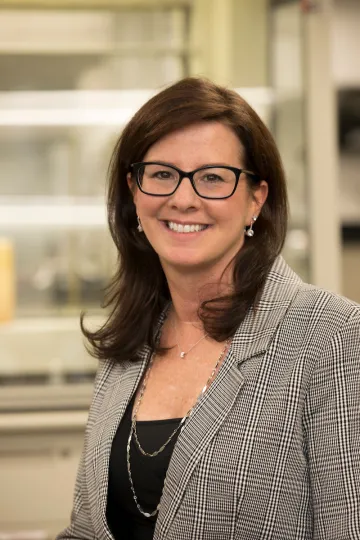When
Presenter:
Dr. Ellen Yezierski
Professor of Chemistry, Chemistry and Biochemistry Department, Miami University, Oxford, Ohio
Abstract:

Transforming chemistry teaching and learning from emphasizing phenomena description to phenomena explanation consistent with the Next Generation Science Standards (NGSS) is necessary in chemistry education. Rather than rote memorization and symbol manipulation, students can build conceptual understanding through visualization of the molecular level. The VisChem Approach uses carefully produced dynamic visualizations with teaching strategies informed by a cognitive learning model to support students in evidencing internal models and their limitations using storyboards (drawings with explanation) of chemical and physical changes. Three secondary chemistry teacher cohorts (N = 64) have participated in intensive summer VisChem Institutes (VCIs) to learn the research foundation and pedagogical moves for the VisChem Approach. The VisChem project has collected and analyzed teacher data from the VCIs as well as student data from VisChem implementation in the teachers’ classrooms to better understand the uptake and fidelity of implementation of the VisChem Approach. Analyses of artifacts from the VisChem Institutes, namely teachers’ lesson plans, videos of co-planning and micro-teaching, teacher-teacher feedback after teaching with the VisChem Approach, and teacher reflections of the VCI, have revealed important findings on how VisChem changes teachers’ chemistry teaching ideas and instruction.
We have uncovered precursors and mechanisms for instructional change, how a focus on explanations, evidence, and models can both advance and constrain teacher learning, and useful socio-pedagogical norms for reform-based chemistry instruction. These findings along with the development of the novel theoretical framework, Pedagogical Chemistry Sensemaking, have key implications for curricular and pedagogical improvements to introductory chemistry courses. Such improvements support the needed transformation of introductory courses to facilitate deep conceptual understanding in chemistry
Biosketch:
Dr. Ellen Yezierski is a Professor of Chemistry, Fellow of the American Chemical Society, and the Director for the Center for Teaching Excellence at Miami University in Oxford, Ohio. She received a B.S.Ed. in chemistry from the University of Arizona and taught high school. She received an M.Ed. in secondary education from Northern Arizona University and a Ph.D. in Curriculum & Instruction (Chemistry Education) from Arizona State University. As a faculty member in the Chemistry Department at Grand Valley State University, she was recognized with a Pew Teaching Excellence Award and co-designed, implemented, and launched the study of Target Inquiry (TI) with Dr. Deborah Herrington.
Dr. Yezierski implemented the TI model at Miami University, where she is a winner of the Distinguished Teaching (Undergraduate), University Scholar, and Graduate Teaching & Mentoring Awards. The Yezierski Group continues to examine the dynamics of chemistry teaching and teacher change in the VisChem Project. VisChem aims to improve conceptual understanding in high school chemistry by moving students from description to explanation by visualizing the molecular level through classroom implementation of dynamic molecular-level animations and storyboarding.






